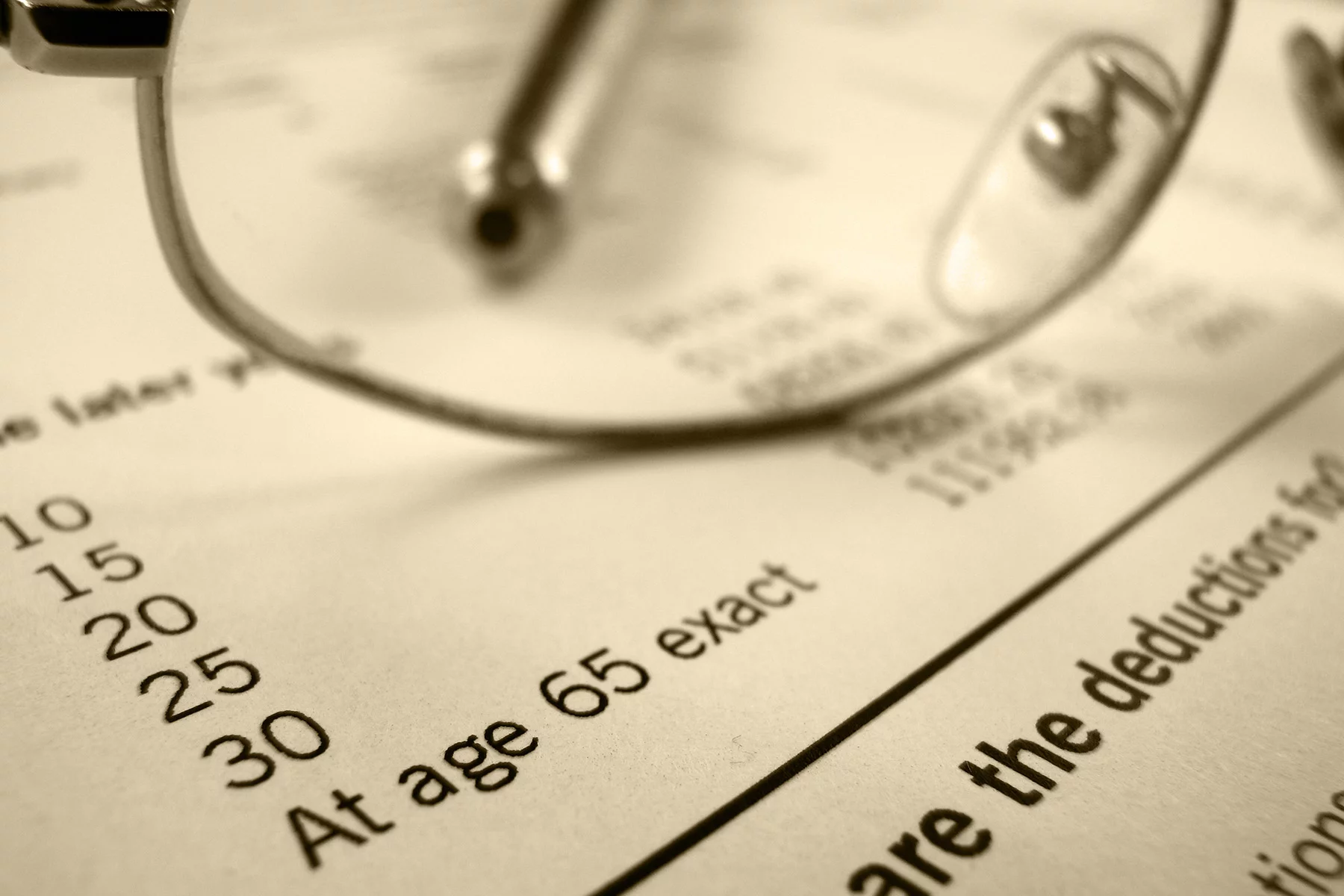Learn how to safeguard your retirement in Belgium by finding out if you are entitled to a Belgian pension, as well as how the Belgian pension system works, with this helpful guide from Salvatore Orlando, head of expatriates at BNP Paribas Fortis.
This guide includes topics such as:
MeDirect
Get more from your money with MeDirect. This Belgian savings and investment bank is home to financial experts who can help you expand your investment portfolio and track your stocks and shares. Enjoy in-app accessibility and let your money work for you with MeDirect.
The Belgian pension system
The pension system in Belgium comprises of a state pension, occupational pensions, and private pensions. Pensions are available to residents aged over 65; this figure is likely to rise as the government looks to cut a spiraling pension bill brought about by an aging population.
According to OECD data, approximately 30% of Belgians are over 65 years old; a figure that is higher than the average of 28% in the rest of Europe. Figures from ING bank show that the average state pension in Belgium for employees is €1,100, €2,600 for civil servants, and €900 for self-employed workers.
Public pension
State pension schemes in Belgium are available for employed people, the self-employed, and civil servants. People employed in Belgium must pay into a state pension; contributions are around 7.5% for employees and 9% for employers.
Upon retirement, how much you will receive in pension income depends on what you earned during your career. There is, however, a minimum state income for pensioners with low earnings.
Occupational pension
Defined benefit and defined contribution schemes are both in existence in Belgium. Occupational pension plans are usually provided by companies or operate across industries. The benefits of the former depend on the particulars of your contract, while the latter tend to be decided through agreements with unions in your industry.
The Financial Services and Markets Authority (FSMA) oversees occupational pensions and pension funds. Insurance companies are regulated by the National Bank of Belgium.
Changes to occupational pensions in 2019
In 2019, the Belgian government made changes to supplementary occupational pensions, meaning companies could no longer restrict access to employees aged at least 25 or with at least one year of seniority. Now, employees will immediately enter into their workplace pension scheme upon employment.
New rules were introduced in March 2019 to allow workers who don’t have a suitable occupational pension (of 3% or more) to instead contribute to a private person through their salary.
Private pension
It is also possible to take out your own private pension in Belgium, with a range of providers offering products to suit different circumstances and the different risk appetites of investors.

Who is eligible for pensions in Belgium?
To qualify for a Belgian state pension, you must have been employed in Belgium with an employer who paid contributions to the Belgian National Office for Social Security (RSZ). Self-employed workers can also claim a Belgian pension under similar conditions, provided they have paid into the social security scheme in Belgium.
Employees, the self-employed, and civil servants all receive their pensions from the National Pension Office (FPD); civil servants previously received their pensions from the Pension Office for the Public Sector, but the two departments have now merged.
Pension age in Belgium
Currently, payment of a Belgian state pension (Dutch: rustpensioen, French: pension de retraite) begins when you are 65 years of age. You will need to have worked for at least 45 years to get the maximum pension.
The Belgian government plans to raise the retirement age to 66 in 2025 and to 67 in 2030 for men and women; meanwhile, the minimum years worked will increase to 42 years.
What happens if you’re not eligible for the full pension?
It is possible to get a state pension from the age of 65, even if you haven’t saved enough money in your pot.
Pensions for low-earning residents are administered through the Income Guarantee for the Elderly (GRAPA) scheme, which is available to people with monthly financial resources of less than €1,121.72 (single) or €747.81 (married or cohabiting). The GRAPA allowance kicks in to take your income up to these minimum levels. You can apply for GRAPA on the mypension website.

Even if you are eligible for a more comprehensive state pension, it still might not be enough for you to live off. With this in mind, it is important to be proactive and prepare for your retirement ahead of time.
You can do this by paying into a personal pension plan. These plans are available through a range of large banks; these are usually paid out in one lump sum when you turn 65. These plans are best for people who plan to lock away their money until the age of 65, as they will need to pay penalties if they withdraw funds early.
Early retirement in Belgium
You qualify for early retirement if you have been made redundant and are eligible for unemployment benefits, or you can prove that you have worked the minimum number of years to retire.
You can have an early retirement at the following ages:
- 60 and with 44 years of service
- 61 and with 43 years of service
- 63 and with 42 years of service
In Belgium, the gap between the actual retirement age and the official retirement age is larger than in most other European countries. The government has been trying to close this gap by making changes to tax rates on pensions. Those who retire at 60 are taxed at 20%, which is 3.5% higher than the rate for a 65-year-old. Furthermore, there is a rate of 10% if you retire at 65 and stay professionally active.
Pensions in Belgium for expats
Whether you can transfer your existing pensions to Belgium depends on whether your country has an agreement with the Belgian government.
Belgium has bilateral conventions with regard to pensions in the following countries: Albania, Algeria, Argentina, Australia, Bosnia-Herzegovina, Brazil, Canada, Chile, the Democratic Republic of the Congo, India, Israel, Japan, Kosovo, North Macedonia, Morocco, Moldova, Montenegro, the Philippines, San Marino, Serbia, South Korea, Tunisia, Türkiye, the United States, Uruguay.
If you reside in any of these countries, you must submit your pension application to whichever institution is responsible for pensions in your current home country. Be sure to mention the bilateral conventions.
QROPS: transfer and consolidate your UK pension
Expats moving abroad from the UK may be able to transfer their pensions into a Qualified Recognized Overseas Pension Scheme (QROPS). QROPS allows expats to consolidate their pensions into one plan. This helps them manage their retirement funds more easily and avoid currency fluctuations.
There are many advantages to QROPS, however they are not suitable or available to all UK pensioners, so we highly recommend you contact an expert financial advisor such as AES or SJB Global. Read more in our guide to QROPS.
Belgian pension rates and contributions
Currently, the maximum state pension for employees who have worked 45 years is €3,100. This figure varies dramatically, from €6,700 for civil servants down to €1,800 for the self-employed. In reality, however, these figures are much lower.
Data from ING Bank shows that the average pension for employees is €1,100, €2,600 for civil servants, and €900 for self-employed people. Your pension is based on how many years you have worked and how much you have earned. The National Pension Office will calculate the amount you will receive based on your average wage over your career; converting past salaries to what they would be worth today.
How the Belgium state pension is calculated
A single person will usually receive 60% of their average wage, and a married person 75%. You can calculate your approximate pension by using the following formulas:
- Single person or person who is part of a double-income couple: 1/45 x 60% x gross annual wage
- Person with a spouse who has no income: 1/45 x 75% x gross annual wage
Pensioners in Belgium are also entitled to a holiday allowance, which is paid each May. This amounts to a maximum of €1,1017.76 for pensioners who are married and €814.22 for a single person. Note that if you have any additional professional income while receiving a state pension, your pension may be reduced or stopped.
You can use the calculator provided by the Federal Pension Service to see how much you might receive in a pension.
Supplementary pensions in Belgium
As living entirely from your state pension is not realistic, there are options for supplemental pensions. One option is an occupational pension scheme, in which company pension plans are administered via an insurance company. Previously, the law dictated that occupational pension plans guaranteed minimum returns of 3.75% on employee contributions and 3.25% on employer contributions. A new law changed this as of January 2016, and there is no longer a fixed rate.
Another option is a private pension plan, which you can organize with your bank or insurance company. This kind of pension enables you to take your retirement savings into your hands while still qualifying for a state pension. You can make contributions to your pension plan, growing your savings with interest until you are ready to retire. The contributions can be deducted on your income tax return.
Pension plans for the self-employed are also available via banks or insurance companies. You can determine how much you contribute and how often, and premiums are tax-deductible.
New rules on supplementary pensions
New rules which came into force in March 2019 allow employees to make contributions to an individual supplementary pension plan with whichever provider they choose; if they don’t have access to an occupational plan where the contributions are at least 3% of their salary.

Contributions are deducted from your salary and sent straight to your pension provider, meaning there are no tax or Belgian social security implications for the employer.
Other pensions in Belgium
Survivor’s pension
In the case of one spouse passing away, the surviving partner qualifies for survivor’s pension. The condition is that they must be at least 45 years old. If they are younger than 45, however, they can still receive a survivor’s pension. This is on the condition that they have a child or are 66% or more disabled. However, if you don’t meet these conditions, you can have a temporary pension, usually up to one year.
If the deceased had already received a retirement pension, the surviving partner qualifies for 80% of that pension. If the deceased had not been receiving a pension, the surviving partner receives 80% of what that pension would have been had the deceased lived to retirement age; this is based on their average wage at time of death. This type of pension stops when the recipient remarries or starts receiving a pension of his or her own.
There are also pension options available for divorced spouses and separated spouses, for which you can find full details on the Federal Pension Service website.
Applying for your Belgian state pension
If you live in Belgium, you do not have to apply for your pension. Rather, the National Pension Office will contact you one year before your retirement begins. Similarly, if you are applying for GRAPA, you will need to do this yourself a year before you are due to retire.
If you qualify for a Belgian pension but live in a European Economic Area country, you can download the application and send it to:
Federale Pensioendienst
Bureau voor Internationale Overeenkomsten
Zuidertoren – 1060 Brussel
Belgium
Once you have received your pension notice, you can track your projected earnings on the My Pension website.
Useful resources
Pensions can be a complicated business, so it’s important to take financial advice before making decisions on your pension. You can seek further information from the following sources:
- National Pensions Office – information on how pensions work in Belgium, including key dates and contact details for departments
- My Pension – view your state pension estimate
- Pension Mediation Service – ombudsman service for disputes over pensions
- Belgian Social Security Office
- Social Security Office for self-employed workers (INASTI)
- Financial Services and Markets Authority (FSMA) – regulator for pension providers


